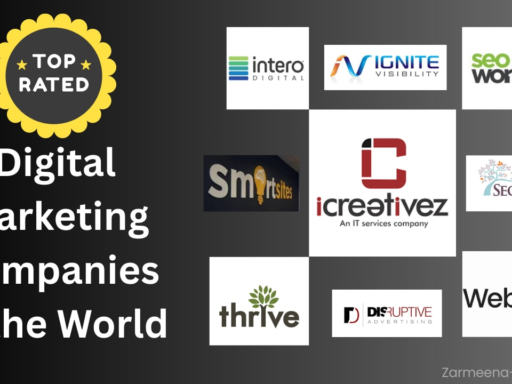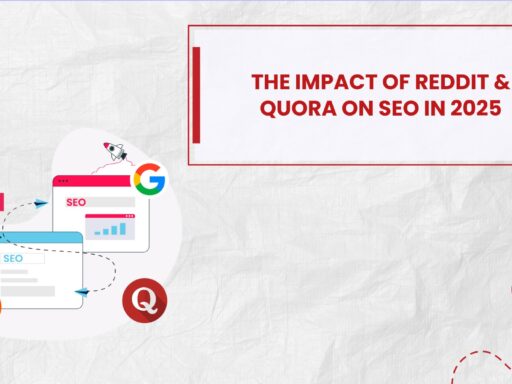SEO is dead! Or so conventional wisdom tells us. The killer? Well, what do you think? It’s 2025. It’s AI, of course, with the silver bullet this time proving lethal rather than empowering. So what’s the reality?
Third party research appears to validate the idea of the erosion of Google’s hold on the search market. For example, digital marketing agency HigherVisibility recently updated its study on How People Search Today: A Study on Evolving Search Behaviors in 2025, which does note an acceleration in the use of AI tools such as ChatGPT to source information, up from 4.1% of respondents in February to 12.5% in August.
But that said, Google maintains a commanding lead when it comes to search, cited by two-thirds of respondents. That is down from February’s 73%, but it does make the point that AI tools have a long way to go to change user behavior. Inevitably GenZ shows the highest increase in ChatGPT adoption, while Millennials register what the study calls “a notable rise” in AI usage, while GenX are cautious and Boomers are the slowest to switch platforms.
Meanwhile, enterprise SEO platform provider BrightEdge just released its own data showing surging AI use for search, noting that Google still has a 90%+ market share, but AI is coming up strong with double-digit month-on-month usage growth. While ChatGPT is typically most frequently cited in the mainstream media on the subject of SEO, Grok and Claude are showing more impressive growth rates. Meanwhile DeepSeek, which was supposed to overturn everything, has seen a sharp decline in usage over the summer.
But BrightEdge’s data makes an important distinction – it is organic search that consistently delivers the best performance in the search space, with AI referrals not translating to conversions…yet. AI accounts for less than one percent of referral traffic. In fact, all traditional channels deliver better conversions than AI search.
Reaction
So what’s the vendor reaction and messaging here? Well, let’s start with Google given that it is supposedly under attack and most likely to lose share. In fact in the most recent quarter from parent company Alphabet, Google Search and Other revenues increased 12% year-on-year to $54.2 billion. According to Alphabet CEO Sundar Pichai, AI offers promise rather than threat:
This is an incredibly exciting moment for Search. We see AI powering an expansion in how people are searching for and accessing information, unlocking completely new kinds of questions you can ask Google. Overall queries and commercial queries on Search continue to grow year-over-year. And our new AI experiences significantly contributed to this increase in usage. We are also seeing that our AI features cause users to search more as they learn that search can meet more of their needs. That’s especially true for younger users.
AI Overviews are now driving over 10% more queries globally for the types of queries that show them, he adds, and this growth continues to increase over time:
AI Overviews are now powered by Gemini 2.5, delivering the fastest AI responses in the industry. We also saw strong growth in the use of multimodal search, particularly the combination of lens or Circle to Search together with AI overviews. This growth was most pronounced among younger users. Our new end-to-end AI search experience, AI Mode continues to receive very positive feedback, particularly for longer and more complex questions. It’s still rolling out, but already has over 100 million monthly active users in the US and India. We plan to keep enhancing the AI Mode experience for users by shipping great features fast. That includes our advanced research tool Deep Search and more personalized responses.
One area in which traditional Google search continues to hold firm is local search where, according to BrightView it dominates with 67.89% of share, with AI tools in second place on 10.07%. That’s followed by Yelp and Social Media, both on 9.7%. At last week’s Goldman Sachs Communacopia + Technology Conference 2025, Yelp CEO Jeremy Stoppelman said:
If I look back on what did Google do in like 2003, 2004, they were focused on general search. They didn’t have maps. They didn’t organize any local content. It wasn’t until like 2006 or so that Google even started thinking about, ‘How do we solve this? Half of the queries have local intent, but we haven’t even really tried to serve up something relevant to consumers’. I think a similar thing is playing out among the folks that are trying to provide a competitive alternative to Google, where they have a lot on their plate, they’ve built out sort of a basic experience that is compelling. Obviously, OpenAI has built a really big brand very quickly, but the local experience is lacking.
That matters when it comes to search success, he argues:
If you’re trying to build a general search experience, you need highly trusted local data. I think consumers also are very aware of the flaws of these LLM (Large Language Model)-powered experiences. If you just turn to one of these search services and ask it a question, it spits out some answers that it could be hallucinated, it could be out of date. And so I think having a trusted partner with a very established brand in the space is really important and value adding to that experience.
That partner could well be Yelp, he suggests, alleging that Google’s AI moves have been over-estimated to date:
Google obviously is trying to make sure that its experience is somewhat similar to what you can find on a ChatGPT, but when it comes to queries that are highly monetized, drive a lot of revenue for Google, it’s a smaller percentage. It’s probably single digit. I have no idea, but probably single-digit percentage. And they’re far more cautious. If there is an AI Overview, you might find it buried towards the bottom of the page. And so it’s really been the same as it had been prior to them starting to add AI layers to search results.
All in on AI
Other vendors are all in on AI when it comes to transforming search, as seen most recently at HubSpot’s Inbound conference in San Francisco. CEO Ramini Yangan told the Goldman Sachs event that while it’s “super-nascent”, HubSpot’s experimentation here is delivering learnings:
What we are finding in terms of AEO is that the strategy, the content is the same. But the strategies that you need to use in order to come up in the answer is quite different than what you did to show up in the links…You have to understand the difference between how to show up in a blue link and how to show up in an answer. The average LLM question is 23 words. And the average search was 5 words. And that begins to tell the difference between AEO and SEO.
That means customers and prospects are asking very specific questions of LLM. It’s not, ‘Hey, what CRM should I use?’, it’s, ‘[I want] a wood manufacturer in the Mid-west serving a population that looks like this ideal customer profile, what are the ways in which I can grow my lead?’. Now in order for you to show up in that answer, you’ve got to have very specific stuff, you have to have quotes, you have to repeat your content across multiple sources.
Users are also going to need a different kind of visibility into what’s happening within AEO, Rangan advises:
Are you first of all showing up in the kinds of questions that you want to show up? You need marketing tools to be able to do that. Then what is your share of voice within LLMs compared to all of your competitors? You need marketing tools to be able to do that. And then how do you drive better conversion of your content through LLMs and AI referrals? You need marketing tools to do that.
So far, it’s working for HubSpot, she notes:
Our internal leads from AI and LLM have grown tremendously over the past couple of years, small base. But the more interesting thing is that leads from LLMs are converting 3x better. That is because when someone asks the question of an LLM they are much deeper in research. They have much higher intent and they are ready to act. And this is a big breakthrough for marketeers. In marketing, you don’t get 3x conversion improvement in any channel.
My take
This is going to be multiple years in the making in terms of how to show up in an answer and how to figure out how LLMs work in terms of marketing messages.
So is it RIP SEO or rumors of death being exaggerated? As ever with tech hype cycles, the answer is probably a bit of both. For the moment, traditional SEO remains dominant, but it’s also clear that keywords are inevitably giving way to questions. For enterprises, now is the time to experiment with alternatives to Google-centric SEO marketing thinking without having to throw the baby out with the bathwater.







